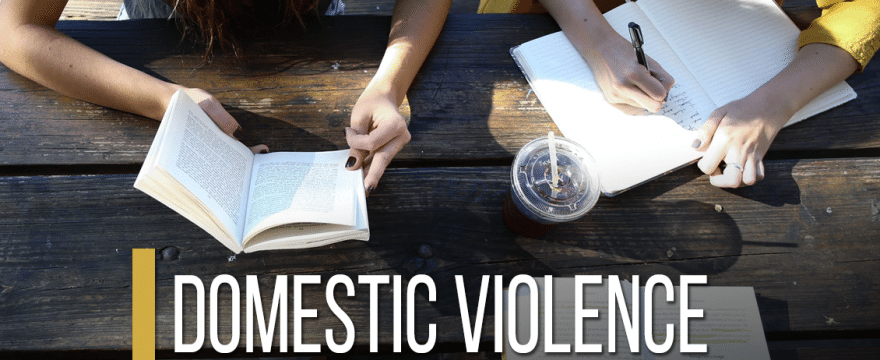This week, I had the opportunity to give a presentation on the topic of domestic violence and mental health to a women’s domestic violence shelter for the staff. The hope of the presentation from the shelter was to better educate staff on how the two are linked as well as give a laymen’s understanding of what mental illness disorders there are and the impact it can have on domestic violence victims.
I wanted to share some of the statistics and information I found in this presentation.
First, let’s start with the definitions, so we are all on the same page:
- Domestic violence: a pattern of abusive and coercive behaviors, including physical, sexual, and psychological attacks, as well as economic coercion, that adults or adolescents use against their intimate partners. [via Ohio Domestic Violence Network]
- Mental Illness: (not mental health) a mental illness is a condition that affects a person’s thinking, feeling or mood. Such conditions may affect someone’s ability to relate to others and function each day. Each person will have different experiences, even people with the same diagnosis. [via National Alliance on Mental Illness]
Why Is Discussing Mental Health Important With Domestic Violence?
- Mental health and substance use disorders make individuals, men and women, more vulnerable to being a domestic violence victim.
- Further, domestic violence victims can develop mental health problems, making them further at risk.
- Batterers use mental health and substance use-related issue to control their partners
- Say statements of “she was out of control”
- Control psychiatric medications
- Undermine sanity, credibility, parenting, & recovery
In essence, and this is deeply disturbing, domestic violence offenders will use mental health and substance use counseling, diagnoses, and psychiatric medication against the domestic violence victim to maintain control.
Statistics of Women
- Women with depressive disorders were around 2.5 times more likely to have been victims of domestic violence.
- For women with anxiety disorders, they are over 3.5 times more likely to be victims of domestic violence.
- Women with post-traumatic stress disorder (PTSD), the chances of having experienced domestic violence was 7 times more than women with no mental health problems.
- Women with other mental health diagnoses, such as eating disorders, obsessive compulsive disorder (OCD), schizophrenia, bipolar disorder, and common mental health problems, were also more likely to have experienced domestic violence compared to women with no mental health diagnoses.
- For men there was a similar pattern. [above via Experiences of Domestic Violence and Mental Disorders: A Systematic Review and Meta-Analysis]
- 86% of women reported their partner called them “crazy” or accused them of being “crazy”
- 50% of women’s partner threatened to report to authorities that they were “crazy” to keep them from getting something they want or need. (i.e. child custody, medication, protection order)
- 74% of women had a partner deliberately do something to make them feel they were losing their mind.
- 53% of women have gone to see a therapist or doctor for mental health services
- Of those 53% of women who receive mental health services, 50% had a partner discourage or prevent them from getting help or taking their medication.
- 27% of women had a partner pressure or force them to use alcohol or other drugs or made them use more than what they wanted.
- 38% of women had a partner threaten to report substance misuse to an authority to keep them from getting something they wanted. (i.e. job, custody of children, etc)
- 24% of women have been afraid to call the police for help because their partner said the police wouldn’t believe the woman because they were using or would be arrested for being under the influence. [above via Mental Health and Substance Use Coercion Surveys]
This is not the end of the conversation, but I think it is important for the Church to understand this field. Too often, pastors get involved in domestic violence disputes and if you are not educated, you may actually cause harm to the situation. Having served as a counselor to several domestic violence victims and offenders, I have seen this first hand. I encourage you to continue to educate yourself, connect with a local domestic violence shelter so you know where to refer people in need, and keep your eyes open.
